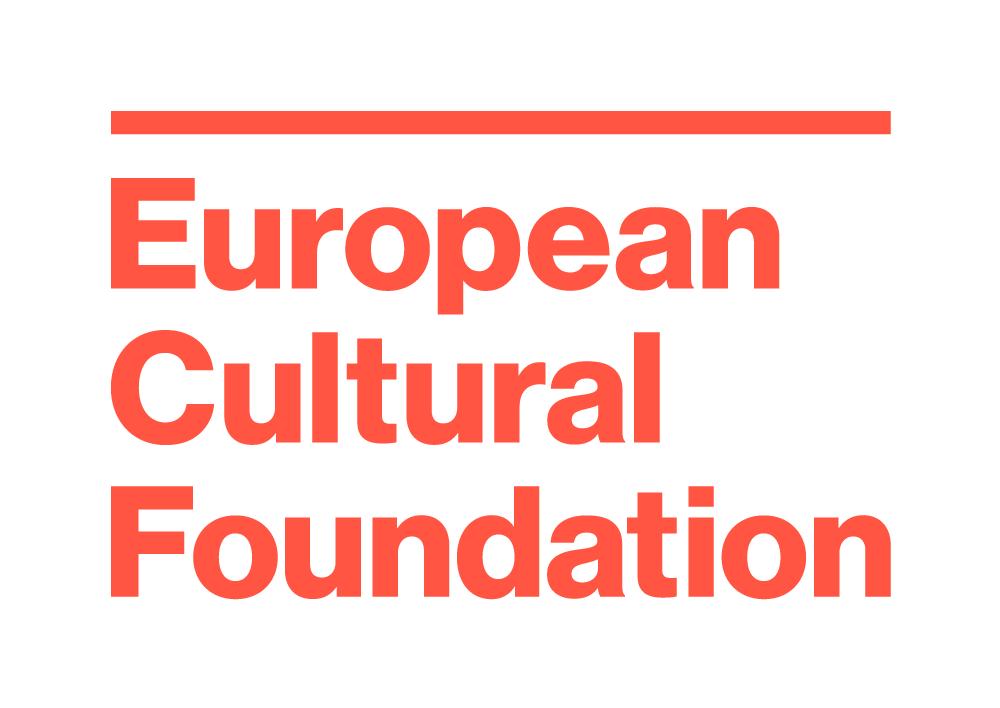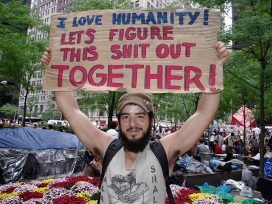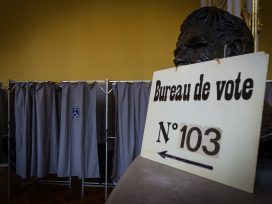Britain’s vote to leave the Union and the advent of a US president who regards the EU as dysfunctional pose a major challenge to the remaining 27 members. Whether the EU continues to decline depends on whether Germany and France can strike a new bargain to strengthen the eurozone after their elections this year.
The European Union is a half-way house of states and peoples, built on a cliff. It has never been and is unlikely in our lifetime to become a full, viable federation along the lines of the United States – which took more than a century to construct in its current form. Yet it is more than a mere international organization like the United Nations or NATO, since it has important elements of supranational governance. Rather, it is a unique and unstable edifice that former European Commission President Jacques Delors aptly called a ‘federation of nation states’.
With Britain’s vote in June 2016 to leave the EU, for the first time a wing has fallen off the house. Even before diplomats begin to disentangle the wreckage in exit negotiations due to start in 2017 and last two years, the surviving 27 tenants are arguing over whether to add additional floors, to all lean in the opposite direction, to try to strengthen the foundations, or to cut back the condominium’s central amenities to a minimum. So far, they have only been able to agree on minor repairs, not fundamental structural improvements.

Donald Trump and Boris Johnson. Photo: Matt Brown. Source: Wikimedia
The EU was long sustained by its own forward momentum, by a common Soviet adversary during the Cold War, by the support of a mostly benevolent superpower across the Atlantic, and by the rising prosperity of the post-war era. For six decades, the ideal of ‘ever closer union’ has been sustained by a broad consensus of mainstream conservative, Christian democratic, liberal and social democratic parties, as well as of employers, non-communist trade unions and the main churches.
That coalition is now being eroded by populist forces on the nationalist right and the hard left, by the crisis of social democracy and the decline of the industrial working class, by the hollowing out of political parties and intermediate social organizations, and by the disruptive impact of economic and demographic globalization. Inequality has increased dramatically in many European societies since the turn of the millennium, spawning a backlash against the open market economy with demands for greater protection from cheap imports, cheap labour and immigration. The prospect of rising prosperity has evaporated for a majority since the onset of the global financial crisis in 2008, and in some failing economies such as Italy for far longer. The blight of mass unemployment and the proliferation of precarious jobs, particularly among the young, has scarred southern Europe, sapping trust in government.
The European Union could and should provide answers to those challenges, but it is perceived by a growing number of citizens as either failing to deliver, or as prescribing misguided and sometimes cruel policies that are part of the problem. The degree to which rules set at the EU level constrain national fiscal and economic policy creates a feeling of disempowerment. Many Europeans now feel that they while they can vote to change government, they are not allowed to change policy. The left-right ‘grand coalition’ that governs the EU institutions in permanent cohabitation adds to the sense of a lack of alternatives other than the extremes.
The EU now faces an existential crisis in a more hostile geopolitical environment. A resurgent Russia under Vladimir Putin is flexing its military muscles to the east and actively supporting Eurosceptic populists inside the EU. Incoming US President Donald Trump, having publicly endorsed Brexit, appears at best indifferent and at worst contemptuous toward the EU and the NATO defence alliance.
Long disintegration
European disintegration has been going on far longer than is generally recognized, partly because fissures have opened in parallel with steps toward closer integration. The first warning lights began flashing at the Maastricht summit in December 1991, which laid the foundations for an incomplete economic and monetary union, from which Britain, then the third largest economy in a 12-nation community, chose to opt out. Denmark rejected the Maastricht Treaty in a 1992 referendum, accepting it only after securing the right to abstain not only from the single currency but also from defence, security and judicial cooperation. This established a two-speed Europe in which some countries might never join what was to become the central economic and political project – the euro.
In retrospect, Maastricht was the high-water mark of federal European integration in the aftermath of the fall of the Berlin Wall and the collapse of Soviet domination of eastern Europe. Just when the ideal of an integrated, democratic, market-based Europe seemed to have triumphed, the seeds of future division were sown. Subsequent advances have engendered growing public resistance. France, a founder member of the bloc, only narrowly approved the leap forward in monetary integration in a 1992 plebiscite. In reunited Germany, Chancellor Helmut Kohl had to use all his political capital to override public opposition and the hostility of the Bundesbank to giving up the Deutschmark. The German constitution does not permit referendums.
The Maastricht treaty triggered an institutional backlash among what might be called the national union of finance ministries. Having yielded control over exchange rates and monetary policy to a European Central Bank, politicians and the ‘deep state’ in the main EU countries felt they had ceded too much power and sought to block further incursions, for example by Brussels statisticians keen to verify their national economic data. The Germans swore the euro zone would never become a ‘transfer union’ redistributing their wealth to poorer southern countries. The French vowed that Europe would never crimp their national power to tax and spend. Member states remained solely liable for their national debt, with consequences that would become painfully clear a decade after the launch of the euro in 1999.
The EU’s central budget is stuck at a meagre 1 per cent of the union’s economic output. Ever since Britain’s battle to secure a rebate on its contribution in the 1980s, member states have come to regard the budget as a zero-sum game rather than a win-win for economic integration. More than a third of it still goes to subsidizing farmers.
Widening versus deepening
The Great European Debate in the aftermath of Maastricht was between federalists who wanted to ‘deepen’ the EU with closer integration and inter-governmentalists who, for strategic reasons and to dilute the EU’s power, wanted to ‘widen’ the union to include the post-communist countries of central and eastern Europe. Both camps agreed that the bloc’s institutions, designed for a community of six that had grown to 15 members by 1995, were ill-fitted for an enlarged union. However, they struggled for more than a decade to agree on a decision-making system with a qualified majority voting mechanism that took greater account of population size. That eventually gave reunited Germany more power, commensurate with its size, and broke its voting parity with France – straining the central Franco-German partnership.
The compromise enshrined in the 2004 Constitutional Treaty created the post of a permanent president of the European Council to chair and prepare summits of EU national leaders, and a virtual EU foreign minister at the head of a common foreign service. It was mostly a victory for the inter-governmentalists, even though the directly elected European Parliament gained more legislative power. Yet two founder members – France and the Netherlands – rejected the treaty in referendums dominated by economic insecurity and hostility to immigration, which had been exacerbated by the eastward enlargement of the Union to include eight new members from the Baltic to the Mediterranean. Fear of the ‘Polish plumber’ undercutting better paid local workers and undermining national identity was a key factor.
Ironically, Britain – which had at best been a semi-detached member since it joined the European Economic Community belatedly in 1973 – opened its borders immediately to workers from the new eastern member states with free-marketeering bravado. More cautious countries such as France and Germany applied the maximum seven-year waiting period for free movement of labour. An influx of hundreds of thousands of mostly Polish workers gave the British economy a sugar rush, but it also aggravated social inequality, sparking resentment at the bottom of the social ladder about low-wage competition and increased pressure on public services. That backlash proved crucial when a weak prime minister, David Cameron, yielded to divisions in his own Conservative Party and to fierce pressure from the growing UK Independence Party to hold a referendum on Britain’s EU membership.
Millions of working class Labour voters, especially in the post-industrial rust belt of northern England, joined Conservative nationalists and UKIP supporters in small towns and rural areas in voting ‘Leave’. It was a vote of the ‘left behind’ against the cosmopolitan, big city and better-educated communities and the Celtic fringes that opted for ‘Remain’. The most powerful slogan of the anti-EU camp was ‘take back control’, encapsulating a sense of threatened identity, hostility to ‘meddling Brussels bureaucrats’ and nostalgia for a bygone age when Britannia ruled the waves. By contrast, pro-EU forces failed to make a positive political case for Europe and focused almost entirely on economic scaremongering, which backfired.
Five months before Donald Trump’s shock US insurgency, a nationalist coalition that was mostly male, white, poorly educated and hostile to immigration had defeated the forces of globalization and internationalism. In Britain, as in America, history has been put into reverse.
Centrifugal forces
Similar centrifugal forces are at work across Europe, with national characteristics shaped by different histories. They are gnawing at the pillars of the EU – open trade, free movement of people, political liberalism, rules-based multilateral governance. But their victory is far from inevitable.
In central Europe, where the legacy of Soviet dominated communist rule mostly disqualifies the hard left, the populist challenge to the liberal European order comes from right-wing nationalists, who have won absolute majorities in Poland and Hungary. Polish leader Jarosław Kaczyński and Hungarian Prime Minister Viktor Orbán have used their mandates to trample on the independence of constitutional courts, judiciaries and central banks, to control public broadcasters, to promote cronies and sideline experienced managers in the civil service and the economy, and to harass civil society. Both have defied criticism by the European Union and sought to reduce the powers of the executive European Commission. Along with notionally leftwing Slovak Prime Minister Robert Fico, they have challenged EU law by refusing to take in Muslim refugees under a European quota scheme. But since their countries are the main beneficiaries of EU budget funds, support for membership is high among their population, so they are highly unlikely to take their quarrels with Brussels as far as secession.
In Spain, Portugal, Italy and Greece, which endured periods of fascist rule in the twentieth century, there is a strong taboo against the extreme Right. The revolt against the liberal globalized economy in those countries has mostly come from the far Left. However only Syriza in Greece has managed to win power, due to the collapse of the mainstream centre Left, which had to implement a brutal austerity program after a 2010 EU–IMF bailout that deepened the economic depression. After taking the country to the brink of bankruptcy and ejection from the eurozone, Syriza prime minister Alexis Tsipras chose in 2015 to stay in the European mainstream and accepted a modified bailout programme, including privatisations and pension cuts. A radical far-left minority advocated returning to the drachma, broke with Syriza but was trounced at a general election which endorsed Tsipras’s government. Electoral insurgency in Greece has given way to resignation and sullen resentment of the EU.
In Portugal, a minority Socialist government has made small corrections to austerity without fundamentally challenging the Brussels–Washington policy prescription. In Spain, the far-left Podemos party has failed to achieve a breakthrough in two elections, despite the weakening of the centre-left Socialists. In Italy, the 5-Star Movement, a motley populist grouping that combines elements of grassroots direct democracy with anti-EU and anti-immigration policies, defeated a constitutional reform put to a referendum by centre-left prime minister Matteo Renzi at the end of 2016, forcing him to resign. It remains to be seen whether Italians will entrust the protest movement led by comedian Beppe Grillo with running a national government.
In northern and western Europe, the biggest challenge to the pro-European consensus has come from the far-Right, with the rise of the National Front in France, Geert Wilders’ Freedom Party in the Netherlands, the Austrian Freedom Party, which nearly won last year’s presidential election, the Alternative for Germany, the Sweden Democrats, the Danish People’s Party and the Finns Party (previously called the True Finns).
Whatever their differences, these parties have in common hostility to immigrants, including war refugees, and to Islam and multiculturalism. Most advocate leaving the EU and the euro, ending the Schengen zone of open-border travel and imposing varying degrees of trade protectionism. While some of these parties were initially economically ultra-liberal, most have now adopted ‘native first’ pro-welfare policies in an effort to satisfy working-class, elderly and poor electorates. While none has so far won a national election, they captured roughly one-quarter of all European Parliament seats in 2014 and use the EU legislature as an echo chamber for their anti-EU rhetoric, as well as a source of taxpayer funding for their domestic campaigns.
The populists often set the tone of national debates by driving mainstream conservative and some centre-left parties to adopt their agenda. Dutch and Danish populists have forced restrictions on immigration and asylum in exchange for supporting minority conservative governments. Establishment politicians have increasingly struck ‘Europe-bashing’ poses on issues ranging from the migration crisis to budget discipline, in an effort to win back disenchanted voters drawn to the extremes.
Backlash against Brussels
The reaction of other European governments and politicians to Britain’s vote to leave the EU reflected this political malaise. There were immediate calls to rein in or roll back the core powers of the European Commission to negotiate trade deals, to regulate competition and state aid to industry, and to enforce budget discipline. France’s prime minister threatened to stop applying EU rules on posted workers from other European countries unless Brussels raised labour costs for foreign manpower. Francois Fillon, the conservative favourite for the 2017 French presidential election, called for the Commission’s wings to be clipped.
The French and Italians led demands for stronger anti-dumping measures to protect vulnerable European industries such as steel and furniture from Chinese imports. Berlin and Paris forced the Commission to concede that a trade agreement with Canada should be subject to ratification by 37 national and regional parliaments, rather than by the European Parliament and EU governments alone. As a result, the Belgian region of Wallonia held up approval, only yielding after winning concessions which could trip up more ambitious trade and investment deals under negotiation with the United States and Japan.
Germany, long the strongest supporter of the Commission’s federal powers, now advocates taking budget supervision out of the hands of the EU executive, which it accuses of being too lenient in enforcing fiscal restraint. Some German ministers have aired the idea of handing the regulation of mergers, state aid to business and antitrust abuses to an independent body. That would strip Brussels of one of its main prerogatives.
Most of these statements were probably venting political steam to appease public opinion, rather than declarations of serious intent to weaken the EU institutions. However, coming on top of a spate of crises over Greek debt, refugees, Ukraine and Italian banks, which exposed the limits and shortcomings of EU solidarity, they further undermine the legitimacy of European integration.
Compounding its troubles, Europe has failed for two decades to produce statesmen of the calibre of Kohl or the late French President Francois Mitterrand, who took a long-term view of the continent’s interests. The eurozone crisis strained personal relations among the main EU leaders, which were further poisoned by beggar-thy-neighbour responses to the mass influx of Syrian and other refugees and migrants in 2015. It can no longer be assumed that all 27 leaders around the EU summit table (which now no longer includes the British prime minister) are striving for a common agreement.
Angela Merkel, the EU’s longest serving and most influential national leader, faced conflicting pressures from southern European states demanding German solidarity to help overcome their debt problems, and from conservative domestic forces – including much of the media – hostile to any greater risk-sharing. While she continued to make a rational, measured case for holding the euro and the EU together, she often acted only at the last possible moment, doing the minimum necessary to keep the show on the road in what she called a ‘policy of small steps’.
Ever fewer mainstream politicians risk speaking out wholeheartedly in support of the EU, though most agree it has been the most successful project for peace, prosperity and cooperation in the continent’s history. Even strong EU supporters feel obliged to preface their remarks with ‘of course I don’t agree with everything the Brussels bureaucracy does’. Just when it seemed that Europeans had definitively replaced war with a process of rules-based governance and permanent, structured negotiation, the grim reaper of European nationalism is back in the ascendant. As Mitterrand said in his valedictory address to the European Parliament in 1995, ‘Le nationalisme, c’est la guerre.’ (Nationalism means war.)
As if Europe did not have enough home-grown problems, the election of Donald Trump was a huge external shock. Trump’s campaign rhetoric was an affront to the values for which the EU stands: multilateral cooperation, supranational governance, a regulated global order, open trade, fight against climate change, regulatory convergence and common defence through NATO – not to mention tolerance, sexual equality and religious and ethnic harmony. His verbal assaults on immigration and Islam helped legitimize identity politics and xenophobia in Europe.
While a coherent foreign policy was hard to discern from Trump’s pre-inauguration tweets and cabinet nominations, there are grounds to fear that he may play European countries off against each other in an attempt to weaken the EU’s role in promoting multilateral open trade, climate action or sanctions against Russia. Despite goodwill towards Europe, and a preference for working with the EU as a bloc rather than pursuing bilateral deals, Barack Obama failed in his attempt to wield Washington’s influence to avert Britain’s vote to leave. A pro-Brexit US president could galvanize the centrifugal forces in Europe, hastening its disintegration through malign neglect if not design.
Muddling through
As the EU prepares to mark its sixtieth anniversary in Rome in March 2017, it stands at the crossroads between creeping disintegration and a modest revival. A great federal leap forward seems impossible, but there are no other obvious candidates to emulate Britain’s example and leave. Indeed, opinion polls suggest support for EU membership rose in most member states after the Brexit vote as Europeans reached for stability.
The Danes and Swedes are perhaps closest to Britain in terms of national democratic tradition, imperial past and an open, free-trading, maritime outlook. Both voted against joining the euro. Yet public support for staying in the EU increased in both Nordic countries after the Brexit vote. Finland and the Baltic states see euro and EU membership as a vital insurance policy against a resurgent Russia.
For founders like Germany, France and Italy, notwithstanding economic or political frustrations, the EU has become an extension of their national identity and international influence. Even in the Netherlands, where Euroscepticism has made deep inroads on the back of anti-immigration populism, old-fashioned Dutch common sense dictates keeping open borders and a common currency with Germany and Belgium.
Barring the improbable but not wholly unimaginable eventuality of National Front leader Marine Le Pen winning the French presidential election in 2017, which would trigger a profound and potentially fatal crisis in the EU, the most likely political scenario is continued muddling through with weak, domestically focused governments, and a feeble, insecure leadership of the European institutions.
Fear of referendum defeats forecloses any revision of the EU treaties for the foreseeable future. That leaves the eurozone’s institutions dangerously incomplete if another severe shock such as a major banking crisis were to hit the currency area. There is no common eurozone budget, no mutualized safe eurozone debt instrument, no joint fiscal backstop for the European Bank Resolution Mechanism, and no common deposit insurance for savers. Fearing that poorer or less fiscally righteous partners are trying to pick its pocket, Germany is blocking those steps. Yet EU leaders demonstrated in 2010–12 that when the euro’s survival is at stake, they are capable of taking remedial action, albeit at the last minute.
The threat to Europe lies more in a long, debilitating decline than a sudden collapse. Without a leap forward in innovation and productivity or an influx of young, skilled migrant workers, an aging European society appears doomed to prolonged economic stagnation with puny growth rates at best. That will exacerbate conflicts among and within nations over resource allocation. With scant wage growth or public money to redistribute, incumbents – including growing numbers of pensioners – will cling to their acquired rights and benefits, while outsiders will fight to obtain a fairer share. Many on both sides of this conflict will blame the EU for failing to deliver rising prosperity for their generation, even though welfare and labour market policies remain national prerogatives.
Yet it would be unwise to underestimate the strength of the political will that has glued Europe together since the Treaty of Rome, and that still makes the EU a beacon to much of the world.. There is too much at stake politically and economically for Europeans and their governments to allow the EU to decay into irrelevance.
The fundamental value propositions of European integration still apply. The overwhelming majority of Europeans are better off together, internationally stronger together, safer together, freer together and have a more secure rule of law than at any time in their history. European social democracy may be in crisis, but that is partly because of its post-war success in lifting millions out of grinding industrial toil, ill health, malnutrition, insalubrious housing and poor education.
The European model of a society that softens the rough edges of capitalism through regulation and social welfare, without suffocating innovation and wealth creation, needs to be adapted to new demographic and technological realities, and to changes in the nature and organization of work. Digitalization will compound this challenge by annihilating manufacturing, clerical and service jobs on a large scale. But the EU’s denigrators offer no credible alternative – whether in the closed-border statist economics of the nationalists, or in a deregulated free-for-all of the libertarian right.
Given the weak legitimacy in public eyes of the European Commission and a European Parliament elected on an ever lower turnout, a revival of integration depends on the Franco-German (or rather German-French, given the shift in balance of power) axis. After their 2017 elections, the leaders of these two central powers will try to thrash out a new compromise to pull Europe out of the doldrums. It will have to go beyond the improvement in defence and security cooperation launched at the 2016 Bratislava summit in the aftermath of Britain’s Brexit vote, and encompass further substantial steps to strengthen the eurozone, to promote economic competitiveness (especially in low-growth France and Italy), to give the EU its own fiscal resources, and to increase public investment in infrastructure and education across the continent. Blueprints for many of these reforms already exist in the so-called Five Presidents’ Report1 by the heads of the EU institutions on completing economic and monetary union; in proposals by the French and German economists Jean Pisani-Ferry and Henrik Enderlein;‘2 and in a report of a High Level Group on Own Resources chaired by former Italian Prime Minister Mario Monti.3
Britain has opted for political and economic self-harm, but the rest of Europe need not. With France and Italy economically feeble, the future of the EU will hinge on German willingness to put long-term enlightened self-interest ahead of short-term zero-sum national thinking. Many in Berlin are loath to acknowledge that historic responsibility. But as Winston Churchill is reported to have said, ‘The problem about committing political suicide is that you live to regret it.’
This article is based on a talk given at the 10th Conference on Solidarity / 27th European Meeting of Cultural Journals in Gdańsk, 4-6 November, organized jointly by Eurozine, the Institute for Human Sciences in Vienna, the European Solidarity Centre in Gdańsk and the Res Publica Foundation.
‘Completing Europe’s Economic and Monetary Union,’ Brussels 2015, https://ec.europa.eu/priorities/sites/beta-political/files/5-presidents-report_en.pdf
Reforms, investment and growth: an agenda for France, Germany and Europe’, Paris/Berlin 2014, http://www.economie.gouv.fr/files/files/PDF/rapport_enderlein_pisani-en.pdf
http://ec.europa.eu/budget/mff/hlgor/index_en.cfm
Published 31 January 2017
Original in English
First published by Eurozine
© Paul Taylor / Eurozine
PDF/PRINTIn collaboration with
In focal points
- Disintegration or revival?
- Mobilizing law for solidarity
- Solidarity after Machiavelli: An interview with Ira Katznelson
- Liberalism, populism and the challenges of post-transformation in eastern Europe and beyond
- The limits of solidarity
- On the borders of solidarity
- The crisis of neoliberalism in Europe
- Utopian dreams beyond the border
- The politics of nature in the Anthropocene
- Strangers when we meet: Identity and solidarity
Newsletter
Subscribe to know what’s worth thinking about.
Related Articles

Pandemic rape in India
The corona crisis, informal gendered support and vulnerable migrant women
Staying home may reduce COVID-19 infection but is not the safest place for all – women with violent partners are more at risk of abuse during lockdown. And solidarity is crucial. Atreyee Sen addresses the critical situation in India, where women are also being attacked in institutions and when forced to migrate.

The price of freedom
A transatlantic conversation
At a moment that is Hamletesque in Minsk and Washington alike, Marci Shore illuminates moments of choice, and what these mean for freedom and human dignity. The following is a transatlantic conversation inspired by Ukraine, moderated by Kant and open to all.






